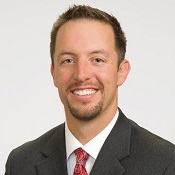
Why should an organization hire you? What do you bring to the table that helps the organization win? What are you known for? If you aren’t communicating these answers briefly and succinctly (backed with facts), you are not standing out and will have a tougher time with your job search. Do not assume your experience and resume speaks for itself. Most people do not read every word of your resume- they scan it and size you up in a matter of seconds. Do not make people guess or leave it up to chance- tell them what you are known for and how you create value for organizations.
Almost 100% of the executives I speak with in my executive advisor role for Wiederhold & Associates do not understand and communicate their value proposition. This is nothing more than personal branding- think of yourself as a business. What brand messages are you communicating? Most people will believe you are who you say you are. For example, if you’re known for growing market share and you communicate this simple message (backed with facts), you have just communicated a brand message.
How do you identify your value proposition? Look at your career accomplishments and look for consistent results. It will likely come from results in service, patient safety, quality, net revenue growth, service line development, employee/physician engagement, turnover, cost containment, productivity, market share, profitability, turnarounds, community benefit or engagement, etc
A well communicated value proposition looks like this, “I am known as a turnaround expert. For example, in my last role I led a $20 million turnaround” or “I am known for getting results in patient satisfaction. For example, in my last role we improved HCAHPs from the 12th percentile to the 75th percentile”.
Be intentional and purposeful about your value proposition- if not it will be defined for you (or not at all). For help in crafting your personal brand, go to www.wiederholdassoc.com for a free consultation.

















